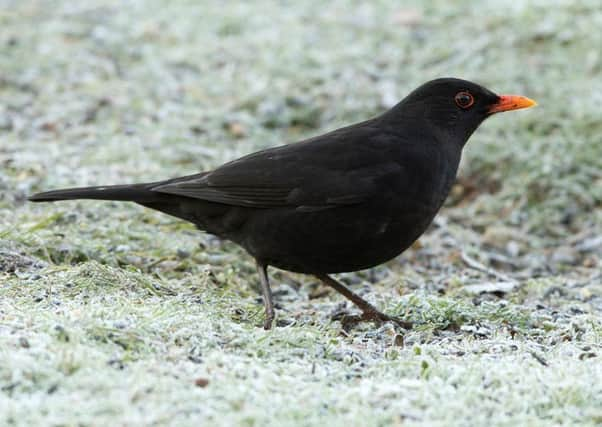COLUMN: Four colly birds.... the real meaning


Well, that line in The Twelve Days of Christmas often confuses people. Some people even say ‘calling’ birds. After all, what on earth does ‘colly’ mean? It isn’t even the proper spelling for the type of dog.
Well, colly is an old English word meaning ‘black’. You can still see it in the alternative word for a coal mine, a colliery. So a colly bird is in fact that familiar garden visitor, the blackbird.
Advertisement
Advertisement
Male blackbirds do really live up to their name. Jet black feathers, offset by a banana yellow bill.
Many gardens will have their own pair of these charming birds living there. The males sing beautifully to defend their territory.
Later in the year, when the weather is warmer, if you hear some lovely rich melodious bird song coming from your garden, the chances are this is a blackbird staking its claim.
In the summer, you will often see them bouncing around on your lawn, looking for worms to eat.
Advertisement
Advertisement
At this time of year, they are more likely to be in trees and bushes eating berries. Fallen fruit such as apples will entice them down to the ground again though.
Blackbirds are usually easy to see in your garden. But do you know what other birds live with you?
At the end of January, there is a great chance to find out, with the RSPB’s Big Garden Birdwatch – an annual survey to find out what birds live in British back gardens.
You can register online through the RSPB website, or pop into Frampton Marsh nature reserve to pick up a form.
Advertisement
Advertisement
Not sure which birds are which? The form or website will help you tell one from another. No garden of your own? Pop down to the park and do it there.
The important thing is that as many people do it as possible, as it gives us a snapshot of how our garden birds are doing.
Who knows, you may even catch a glimpse of a colly bird, or four.
Dr Chris Andrews is visitor experience manager at RSPB Frampton Marsh